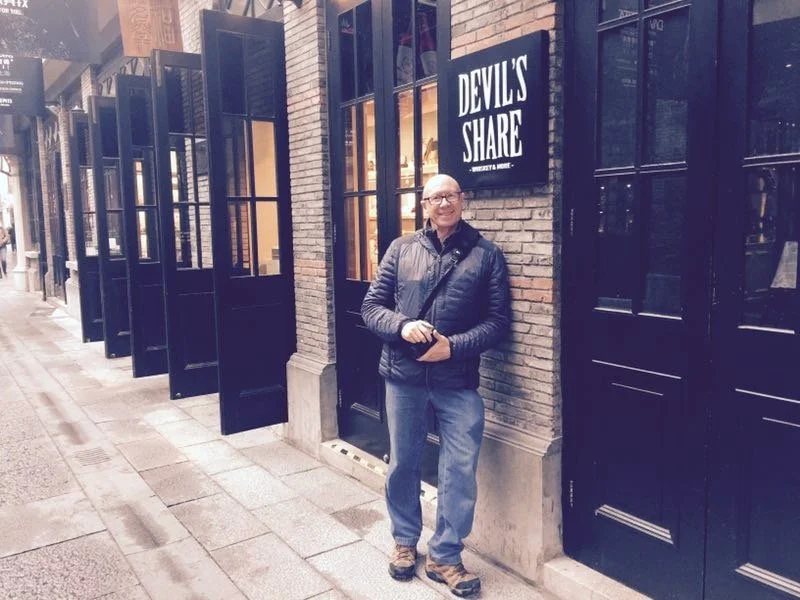Writing From The Inside Out 2025 Week 19 Prompts
based on Miraslav Holub’s, The Door
If you wish to attend the read around (t’s free, fun, a great way to share, and reading a poem is optional). Note: If you registered already, you do not need to register again, simply use the link sent to you in your confirmation email. Register Here:
Next Read-Around is 5/8/25 at 5:00 PM PST
How It Works:
Read the poem
Do your own reflection on it, noting what it inspires in you
Feel free to use your own reflection as your prompt or…
Use the selection of prompts below
Pick one that inspires you and write (feel free to use only one or write several poems using different prompts) or…
Don’t use any of the provided prompts and follow your inspiration from wherever it comes
My Thoughts
Miroslav Holub’s poem, The Door, reminded me of Robert Frost’s famous poem, Mending Wall, which triggered voracious debate about personal, social, and national walls in its time--a debate that continues to divide us to this day. “Something there is that doesn’t love a wall,” is famously quoted from Frost’s poem. But the opposite is also true: something there is that does. Walls enclose us, keep us safe, keep the overwhelming world — all its perplexing possibilities, it’s terrifying beauty, its perpetual troubles, and its lurking dangers — at a distance. The more dangerous the world appears, the more likely we are to strengthen our walls and retreat behind them. Walls have an archetypal presence in our individual psyches and our collective mind, both to shut out the world and to shut ourselves in. Just as walls have archetypal power in our collective imagination, so do doors. Doors are magical because they serve both as an extension of a wall and an opening in a wall that allows you to pass through and to go into or out of a walled area. Holub’s poem addresses the reader as an insider who has retreated from the world. The poem implies that shutting in disconnects us from the world and creates a kind of stagnation. Miroslav invites us to “go and open the door,” but with a genuine curiosity about what we may encounter. He cleverly leaves us with the image of the door opened and does not push us to go outside. No matter what surfaces on the other side, at least an open door will bring a much needed breeze. And, o fcourse, you can always step back into the safe zone if needed.
The Door
Go and open the door.
Maybe outside there’s
a tree, or a wood,
a garden,
or a magic city.
Go and open the door.
Maybe a dog’s rummaging.
Maybe you’ll see a face,
or an eye,
or the picture
of a picture.
Go and open the door.
If there’s a fog
it will clear.
Go and open the door.
Even if there’s only
the darkness ticking,
even if there’s only
the hollow wind,
even if
nothing
is there,
go and open the door.
At least
there’ll be
a draft.
MiroslavHolub
https://www.poetryfoundation.org/poets/miroslav-holub
Prompt Ideas
Journal or write a poem about the archetypal power of walls, borders, boundaries. Wherever theidea takes you.
Journal or write a poem about the archetypal power of a door.
Holub offers several possibilites of whatmight appear once we open the door. Use your imagination to write about what appears to you if you were to open the door from your inside world.
Holub repeats the opening line, go and open the door, in several stanzas and then offers possibilities (maybe a tree, a dog, etc.). Use that repeat phrase (or create one of your own) for your prompt. Consider the opposite, go and close the door and write about what might follow from there.
Journal or write a poem inviting the reader to openthe door to the world inside and discover what is there.
Holub switches from the possibility of what might be observed (using maybe) to contingencies (using if). I have always apprciated the use of “if” in the phrase “even if,” which allows for a negative to lead to a positive: even if there is nothing there…. Holub also uses another brillaint phrase, “at least,” whcih adds power to something we might normally consider negligible.
Invite the reader to go to an environment of your choosing: a garden, a city street, a library, with geneuine curisoity about what might be seen, heard, or sensed there. You can offer possibilities and contingencyes as does Holub.
As usual, write about anything else in the poem or in life that inspires you.
